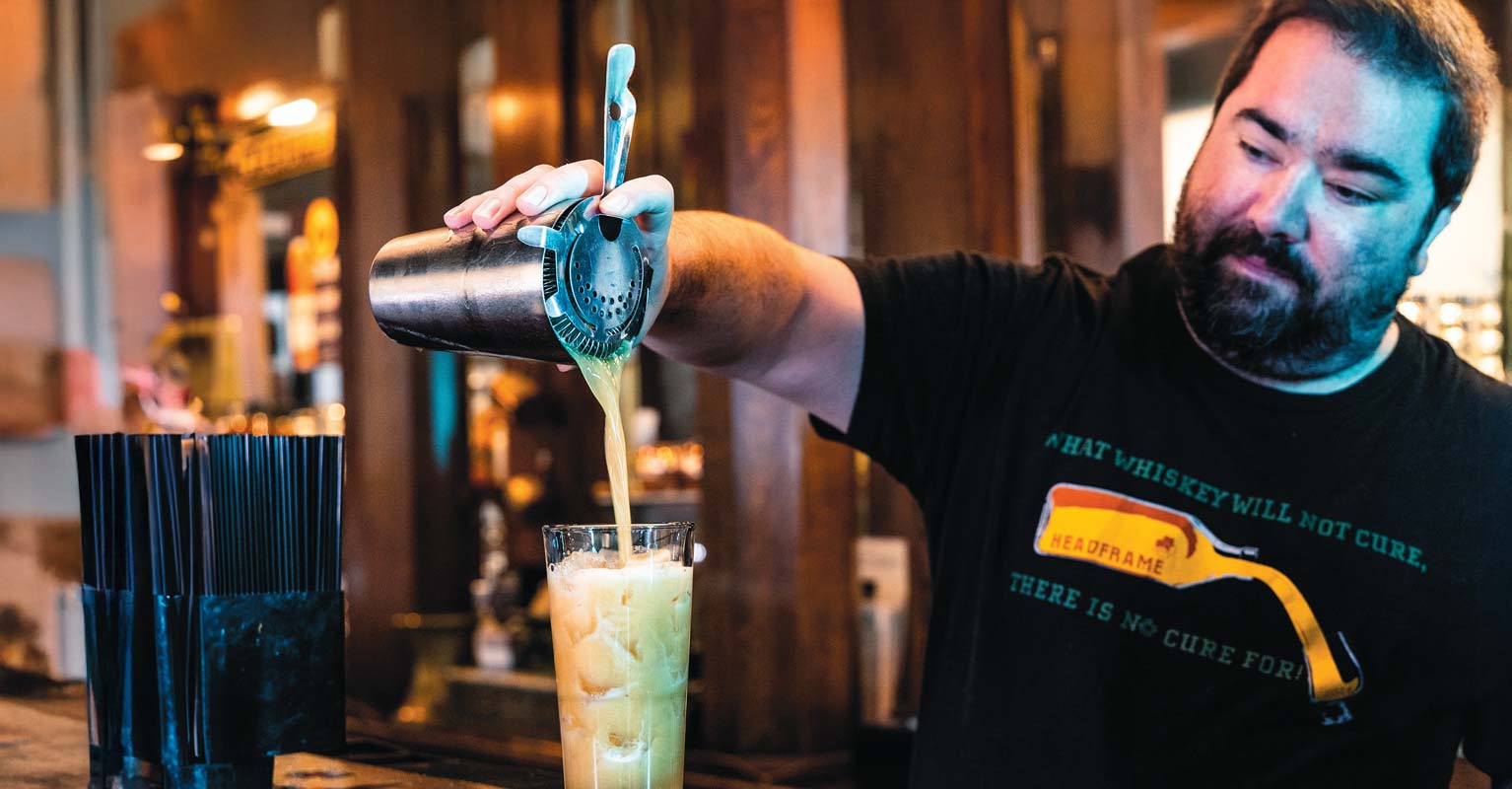GTA funding is helping Ellie Southworth’s Genuine Ice Cream move to a facility that will allow the company to expand its wholesale accounts.
Grant Helps Businesses Succeed
Every October, dozens of food producers and processors throughout Montana take time away from their fields and kitchens to apply for grant funding through the Montana Department of Agriculture. One of the department’s most popular grants in recent years is called Growth Through Agriculture (GTA).
Historically, this grant and loan program had one pool of funding available to individuals, businesses, institutions, and local governments working on projects focused on strengthening and diversifying Montana’s agricultural industry. Starting in 2022, the GTA program expanded funding for market development and business acceleration. Food producers and processors can apply for up to $50,000 in grant funding and up to $100,000 in loan funding.
In 2022, seven businesses located in the Bozeman, Belgrade, and Livingston areas were awarded funds through the GTA program. Here’s how three of them are putting the financial help to use.
Genuine Ice Cream
As summer weather finally makes its way to Bozeman and the rivers flow with snowmelt, nothing sounds better than a cold, sweet scoop of ice cream after a day working in the field or playing in the mountains. Genuine Ice Cream started serving ice cream in 2015 and opened in its first permanent location at 7th and Main Street in 2020. After a short stint at that location, Genuine has settled into two new locations: They now have a shop open at 605 W. Peach St. and, after growing out of two former production facilities, the business has moved into a larger production space in Four Corners. This was made possible by GTA funding.
According to owner Ellie Southworth, the seasonality of the business has made cash flow uncertain at times and business expansion has been difficult as costs have dramatically risen in Bozeman over the past few years. Southworth first heard about GTA funding through the Food and Agriculture Development Center network. These centers, located throughout the state, support economic development for any Montana businesses working in the food space.
Southworth says the funding has allowed them to move to and outfit their new facility, thus streamlining many of their processes. They plan to stay in this new processing space for at least a decade and will work to expand their wholesale accounts.

Unwaffle
One day in 2015, Erik Walnum got curious when he woke up feeling tired of eating overnight oats for breakfast. That morning, he decided to scoop some of his overnight oat mix into a waffle iron—and so began his development of Unwaffle. While the recipe behind Unwaffle has changed over the past eight years, the team is still dedicated to creating products with simple, clean ingredients. These naturally high-protein waffles are free of the top 14 allergens and are vegan and gluten-free. Having a breakfast option that checked these boxes was important to Walnum and his wife, Mollie, as they navigated some tricky food sensitivities with one of their own children.
What started as a family need eventually transitioned to a full-blown business and Joe Sheehan joined the team as a co-founder. Financial consultant Tom Walker mentored Unwaffle through Montana State University’s 406 Labs incubator and has stayed involved with the business as a financial advisor. However, it’s clear the company is a full family affair. The Walnums’ three children—aged 2–8—eagerly showed me Unwaffle’s new kitchen space, and Mollie, an experienced baker, has provided guidance and support throughout Unwaffle’s expansion. During the early stages of the business, Walnum made one waffle at a time. While the waffles are all still handmade, Walnum is now able to produce 300 pounds of waffles an hour using specialty equipment manufactured in Belgium.
GTA funding heavily prioritizes projects that purchase inputs from Montana growers. While sourcing Montana ingredients has always been important to the team, Walnum describes how the GTA grant has helped him optimize Montana-grown products. Prior to receiving the grant, approximately 65 percent of Unwaffle’s ingredients were Montana-grown. That has since increased to 80 percent. Two of the primary Montana-grown ingredients are gluten-free oats and lentils from Timeless Natural Food. Walnum brought knowledge from his career in the food industry and as a private chef to help local processors mill oats in a distinctive way that complements his waffle recipes.
Unwaffle will use GTA funding to design and label packaging and outfit their new production space. The company will continue to provide food for its local community while beginning to expand to a regional and eventually nationwide market. Walnum explains that “none of this would be possible without GTA,” adding that the support he’s received from the community, family, and friends has also greatly influenced his success.
This summer, you can find Unwaffle products at the Gallatin Valley Farmers’ Market, Big Sky Farmers Market, Farmer’s Daughters Café, and The Well Juicery. Unwaffle waffle mix is available at the Bozeman Community Food Co-op.

Kuvu Bio Solutions
While the GTA program typically provides funding to food producers and processors, financial support is available to anyone who might have a positive impact on Montana agriculture more broadly. During this funding cycle, a unique project was chosen that is expected to have wide-reaching implications for agriculture worldwide. Kuvu Bio Solutions is a new startup in Bozeman that focuses on producing a non-synthetic bio herbicide, one of very few products on the market that can kill weeds without the use of harmful chemicals. This process involves selecting local fungal strains that attack the target weed while not harming surrounding crops.
While Kuvu is new to Montana, Claire Sands Baker and her father, David Sands, have been working on a similar project in parts of Africa for many years under the name The Toothpick Project. Their weed control projects in Africa have targeted Striga, a weed that commonly kills crops, leaving farmers food insecure and without a reliable source of income. Sands Baker describes how, in many African countries, these weeds are a major food security issue while in the United States major weeds are often an environmental issue.
Now moving their efforts to the United States, Kuvu will initially target 14 of the nation’s most common weeds. Sands Baker says Kuvu’s “biological herbicide will replace synthetic chemical herbicides that have a pretty large footprint with greenhouse gas emissions. There are also some other issues with synthetic chemical herbicides, including herbicide-resistant weeds—super weeds that have developed because they’ve been treated with chemicals so many times that they’re resistant now.”
This product will also help address a lack of available resources for farmers looking to transition to organic or regenerative growing practices. Here in Montana, Kuvu has been working with the Montana Organic Association and together, they’ve identified Canada thistle and field bindweed as initial target weeds for the project. Kuvu will utilize a 0-percent-interest GTA loan to contract researchers who will identify naturally occurring wilted weeds and research fungal strains that cause disease. Over the next year, Kuvu will work to identify specific fungal strains, interview stakeholders throughout Montana, and begin lab work.
Importantly, Kuvu could use the community’s help with this project. If you have diseased weeds in your yards or fields, consider contacting the Kuvu team so that they can study the cause of the disease to learn if it is a fungus that can be developed for weed control. Contact Kuvu through the website at kuvubio.com/contact.
While grant and loan applications for Growth Through Agriculture general funding are typically due in the fall, funding for the Business Acceleration Program and Market Development Program are offered throughout the year on a rolling basis. To learn more about the Growth Through Agriculture program, visit agr.mt.gov/GTA.




